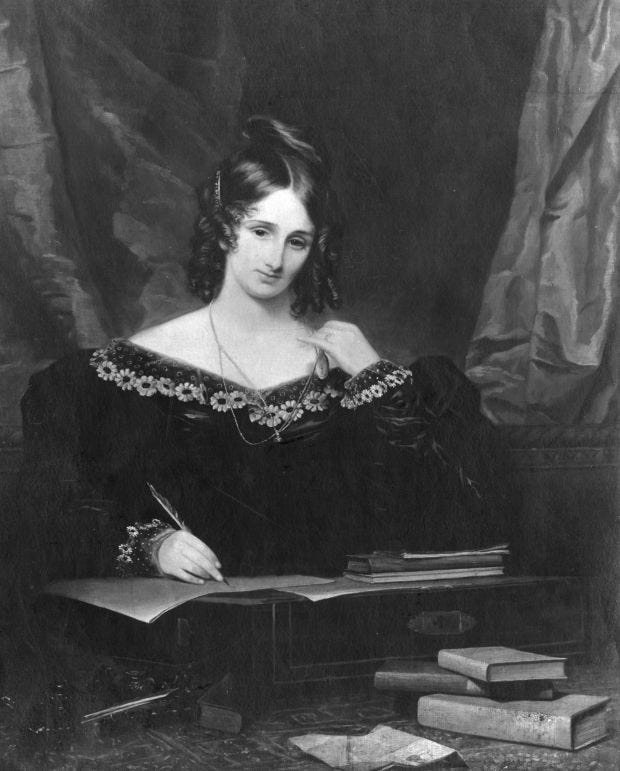From the Archives: Frankenstein
Excerpts from an academic past
If you are in Los Angeles, tickets for my rescheduled screening and Q&A event at the Philosophical Research Society are now on sale! Jean Cocteau’s Orphée (1950), Sunday April 6th, 7pm. Be there or be square!
ICYMI, I wrote about a run-in I had with a Nazi in my last piece, which is available to read for free at the link here.
I was recently asked what my favorite book is, which is Frankenstein, the landmark Mary Shelley novel about a boundary-crossing scientist and his wayward creation. I prefer her original 1818 edition of the story, which she wrote as a teenager and published at 20 years old. Her prose was clear, modern and concise; the implications of the story had more to do with personal autonomy than predestination. The more commonly found edition of Frankenstein was published in 1831 and heavily revised by Shelley, who at that point wished to excise some of the more radical language in her original story.
Victor Frankenstein’s Creature, in many ways, remains my personal Sacred Monster. When I was thinking about what to name this platform, he factored into the personal meaning behind it.
One of the most awe-inspiring things about Frankenstein, to me, is the fact that it is the pioneering text of science fiction, and that that means the genre was invented by a teenaged girl. This, on top of the fact that she was inspired to write it as part of a scary-story challenge that she participated in with Lord Byron, her husband Percy Bysshe Shelley, and John Polidori on a night where they were searching for ways to pass the time while holed up in a home on the shores of Lake Geneva. That I grew up in the same region of Switzerland always resonated with me when I read the book.
Back when I was an undergrad, the professor of a seminar I took exclusively about Frankenstein published a bunch of essays we had written into an academic journal she edited called Frankenstein: New Perspectives on the Romantic Novel (2015). Apparently, there’s a copy in the Columbia library on hand for people to cite, if they so choose.
Below, I’ve excerpted part of the essay I contributed, which I wrote around the same time that I was conceiving of my thesis, which was about Jean Cocteau and his diary, Opium. It’s both amusing to revisit my previous work, but also to notice which themes seem to emerge in my interests, ethics, and approach to the arts (I am more of a humanist than I realized!) It’s also amusing to see how much my style and ethos has evolved away from the hard-core academia on display below. That said, although my style has vastly changed over the decade since this was written, it’s my belief that perhaps there are some people here who may be interested in reading academic work, anyway. And who am I to gatekeep?
Without further ado, enjoy — and I’ll be back to my regular programming next time with a piece about Cocteau’s greatest heartbreak: the notorious Raymond Radiguet.





